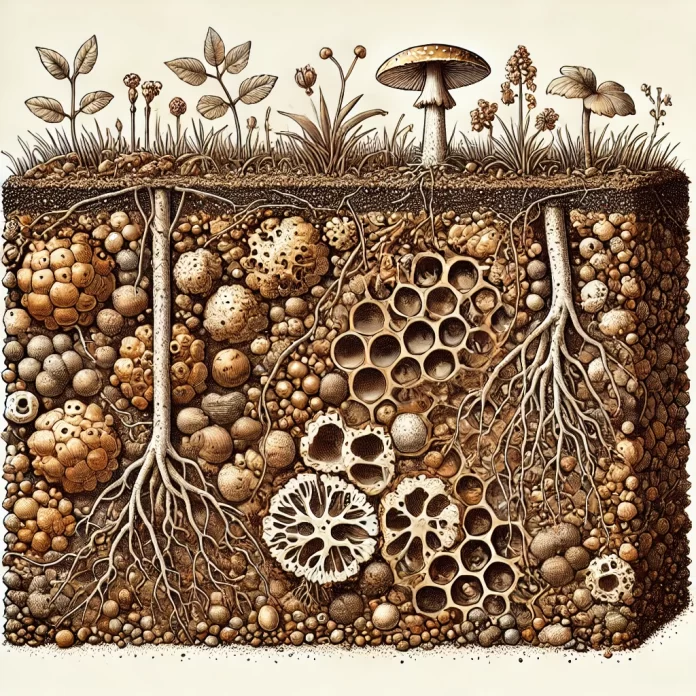(noun, adjective)
- (Botany, Horticulture – Noun) A group of small, distinct units or structures that are clustered together but remain individually identifiable. In horticulture, this term is often used to describe certain types of fruit, soil particles, or plant structures.
- Aggregate Fruit: A type of fruit formed from multiple ovaries of a single flower, each developing into a separate small fruit but remaining connected. Examples include raspberries (Rubus idaeus) and strawberries (Fragaria × ananassa).
- Soil Aggregate: Clusters of soil particles bound together by organic matter, root exudates, and microbial activity, which improve soil structure, aeration, and drainage.
- (Adjective – Botany, Horticulture) Describing a plant characteristic involving clustered units, such as aggregate flowers or leaves.
- Aggregate Inflorescence: A floral arrangement where small individual flowers are grouped tightly, resembling a single larger bloom, as seen in plants like Achillea (yarrow) and Daucus carota (wild carrot).
Understanding aggregates is essential for soil health, plant classification, and fruit development in horticulture.




